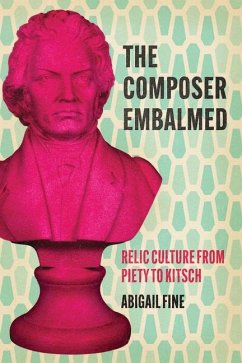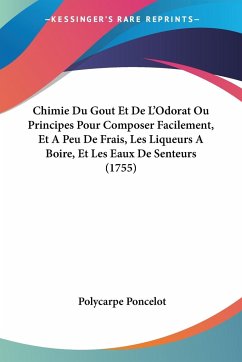"The first granular study of nineteenth-century composer-devotion--a network of devotees who preserved tangible traces of composers through relics, rituals, pilgrimage, exhuming, and embalming. During the nineteenth century, music institutions promoted artworks they deemed timeless and made composers into figureheads of a lasting Western canon. Alongside this institutional face of the canon was a more intimate impulse to preserve, touch, and embrace the residues of the dead. In Germany and Austria between 1870 and 1930, music lovers venerated the bodies, houses, and belongings of composers as relics, shrines, and talismans. In The Composer Embalmed, Abigail Fine documents the vernacular and eccentric ways that composers have been remembered. Fine navigates a wealth of unknown archival material to recover the stories of devotees: from pilgrims who felt time stop in historic houses, to music-loving doctors who made skulls into sacred specimens, to dilettantes who displayed Beethoven's mask as a relic of the "beautiful death," to interwar critics of those dilettantes who disparaged piety as a false religion, a kitsch replica. In isolation, these practices may look like simple acts of affection, but in the aggregate, Fine asserts, devotion to composers participated in a culture of acquisition and display that we might broadly understand as relic culture--a culture that sought to possess, scrutinize, and eroticize the body of the departed genius. Excavating quirky objects, visual ephemera, amateur lyrics, keepsake albums, visitors' books, letters, and travelogues, The Composer Embalmed reveals a portrait of art music's guilty pleasures, its morbid curiosities and fetish culture, as Europe's anthropological impulse to acquire and display became an engine of its own heritage"--
Hinweis: Dieser Artikel kann nur an eine deutsche Lieferadresse ausgeliefert werden.
Hinweis: Dieser Artikel kann nur an eine deutsche Lieferadresse ausgeliefert werden.








